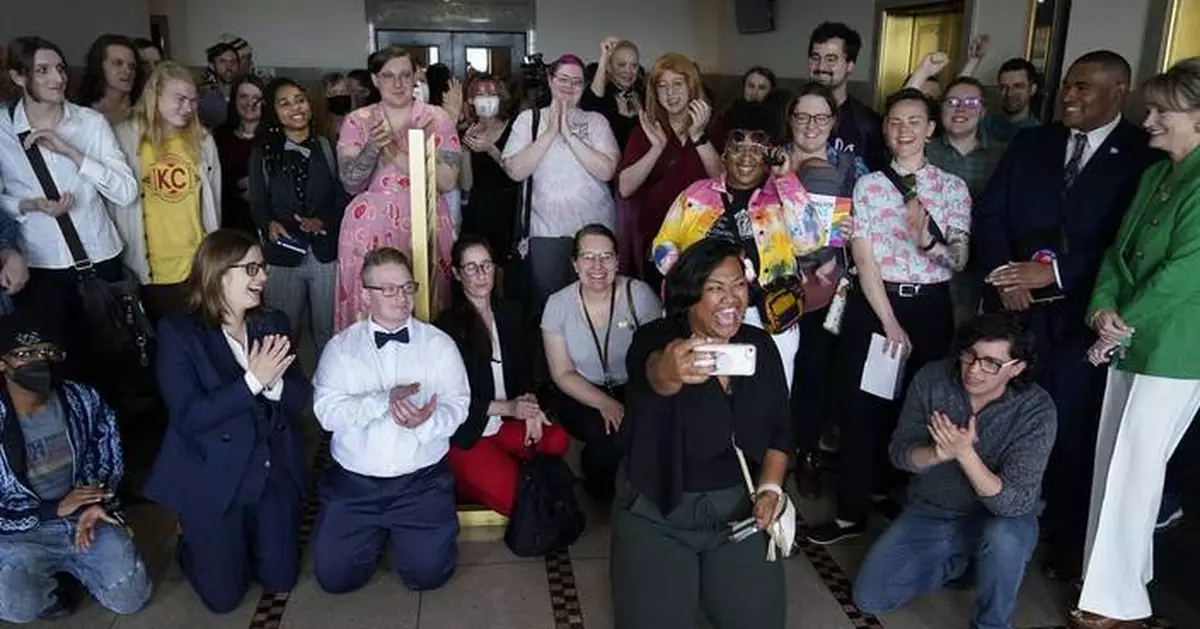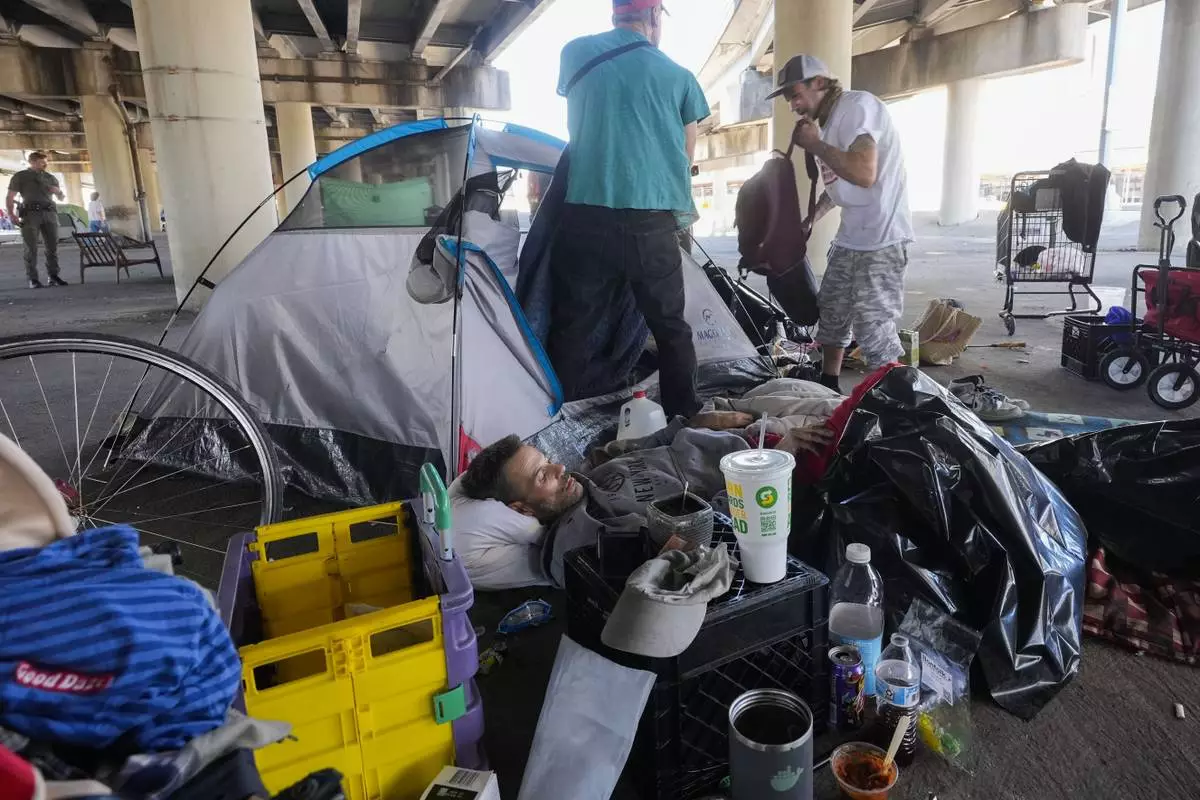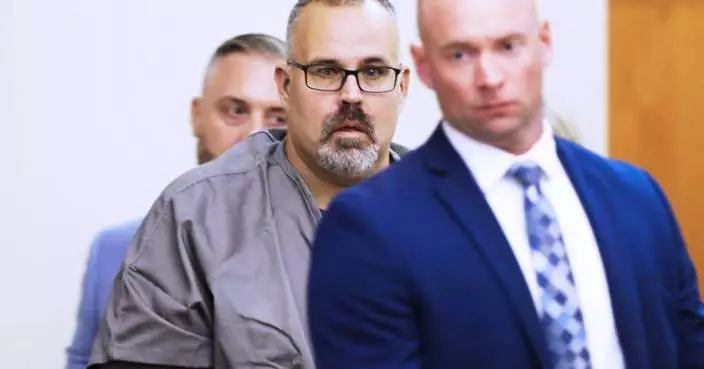COLUMBIA, Mo. (AP) — A Missouri court on Monday upheld a new state law that bans some gender-affirming health care for minors, a victory for supporters of the ban as a multitude of lawsuits against similar bans in other states continue to play out.
Republican Attorney General Andrew Bailey said in a statement that Missouri is the “first state in the nation to successfully defend such a law at the trial court level.” Bailey, who tried to ban minors’ access to gender-affirming health care through rule change but dropped the effort when the law passed, is responsible for defending the legislation in court.
“I’m extremely proud of the thousands of hours my office put in to shine a light on the lack of evidence supporting these irreversible procedures," Bailey said. "We will never stop fighting to ensure Missouri is the safest state in the nation for children.”
Every major medical organization, including the American Medical Association, has opposed the bans on gender-affirming care for minors and supported the medical care for youth when administered appropriately.
Lambda Legal and the ACLU of Missouri, which are representing the plaintiffs who sued to overturn the law, on Monday said they will appeal the ruling.
Missouri is among at least 26 states that have adopted laws restricting or banning gender-affirming medical care for transgender minors.
Federal judges have struck down the bans in Arkansas and Florida as unconstitutional, though a federal appeals court has stayed the Florida ruling. A judge’s orders is in place temporarily blocking enforcement of the ban in Montana. New Hampshire restrictions are to take effect in January 2025.
The Missouri law banned gender-affirming surgeries for children and teenagers under the age of 18, as well as hormones and puberty blockers for minors who had not started those treatments as of August 2023. The law expires in August 2027.
These treatments are accepted by major medical groups as evidence-based care that transgender people should be able to access.
Most adults still are allowed to access gender-affirming health care under the Missouri law, but Medicaid won’t cover it.
The plaintiffs, including family of several teenagers who are transgender, argued the law takes away medically necessary treatments from transgender minors while still allowing other children to access similar surgeries and medications.
Wright County Circuit Court Judge Craig Carter disagreed. In his ruling, the southern Missouri judge wrote that he believes there's “an almost total lack of consensus as to the medical ethics of adolescent gender dysphoria treatment.”
“The evidence at trial showed severe disagreement as to whether adolescent gender dysphoria drug and surgical treatment was ethical at all, and if so, what amount of treatment was ethically allowable,” Carter wrote.
Lambda Legal and the ACLU of Missouri in a statement said the ruling signals that "for some, compassion and equal access to health care are still out of reach.”
"The court’s findings signal a troubling acceptance of discrimination, ignore an extensive trial record and the voices of transgender Missourians and those who care for them, and deny transgender adolescents and Medicaid beneficiaries from their right to access to evidence-based, effective, and often life-saving medical care,” the organizations said.
The states that have passed laws restricting or banning gender-affirming medical care for transgender minors include: Alabama, Arkansas, Arizona, Florida, Georgia, Idaho, Indiana, Iowa, Kentucky, Louisiana, Mississippi, Missouri, Montana, Nebraska, New Hampshire, North Carolina, North Dakota, Ohio, Oklahoma, South Carolina, South Dakota, Tennessee, Texas, Utah, West Virginia and Wyoming.
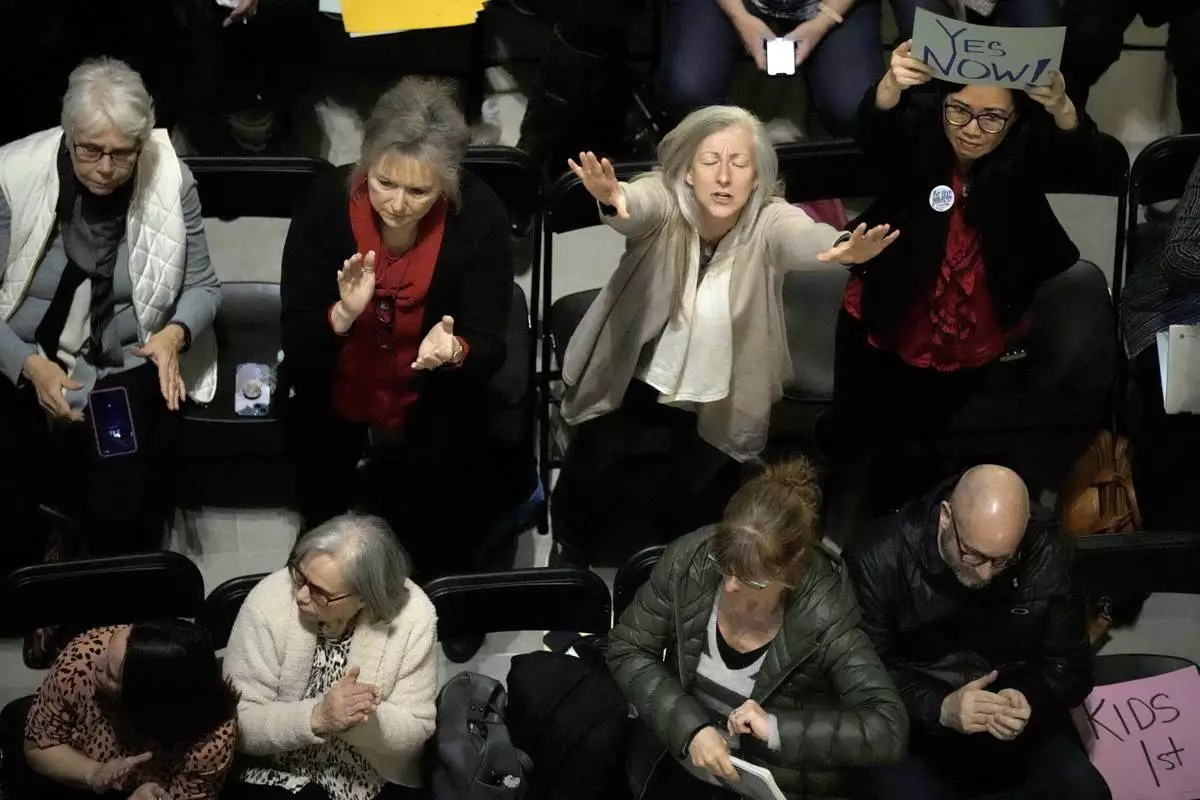
FILE - People applaud during a rally in favor of legislation banning gender-affirming healthcare for minors, Monday, March 20, 2023, at the Missouri Statehouse in Jefferson City, Mo. (AP Photo/Charlie Riedel, File)
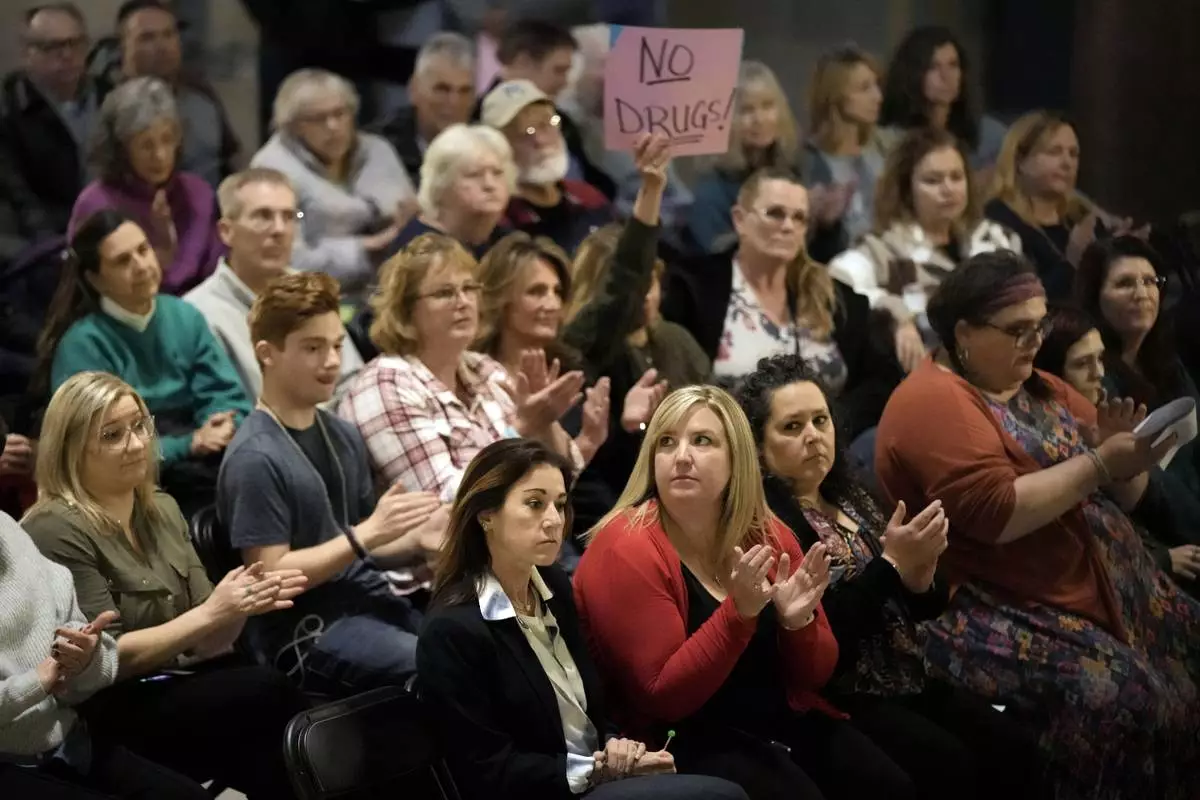
FILE - People applaud during a rally in favor of legislation banning gender-affirming healthcare for minors, Monday, March 20, 2023, at the Missouri Statehouse in Jefferson City, Mo. (AP Photo/Charlie Riedel, File)

FILE - Julia Williams holds a sign in counterprotest during a rally in favor of a ban on gender-affirming health care legislation, Monday, March 20, 2023, at the Missouri Statehouse in Jefferson City, Mo. (AP Photo/Charlie Riedel, File)
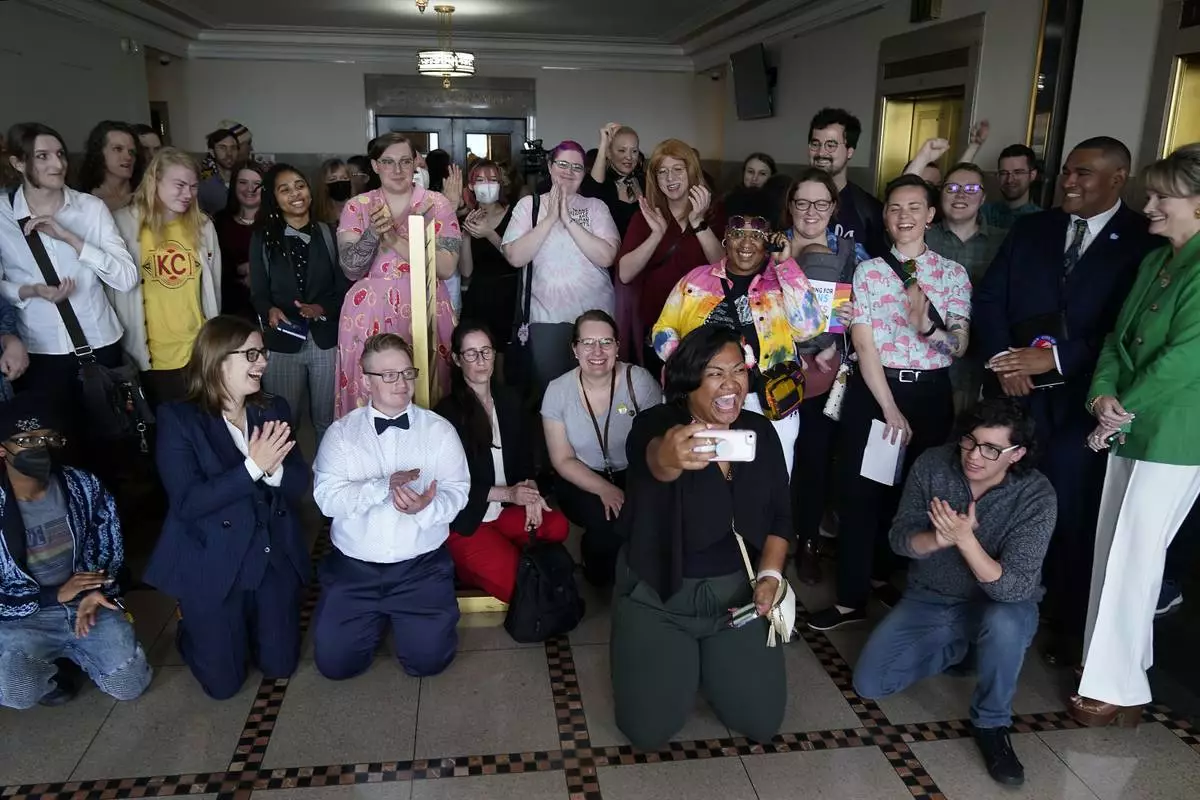
FILE - Supporters of a resolution that would make Kansas City, Mo, a sanctuary city for transgender people celebrate outside of city council chambers after a committee approved the resolution, sending it to the full council for consideration, Wednesday, May 10, 2023, in Kansas City, Mo. (AP Photo/Charlie Riedel, File)


